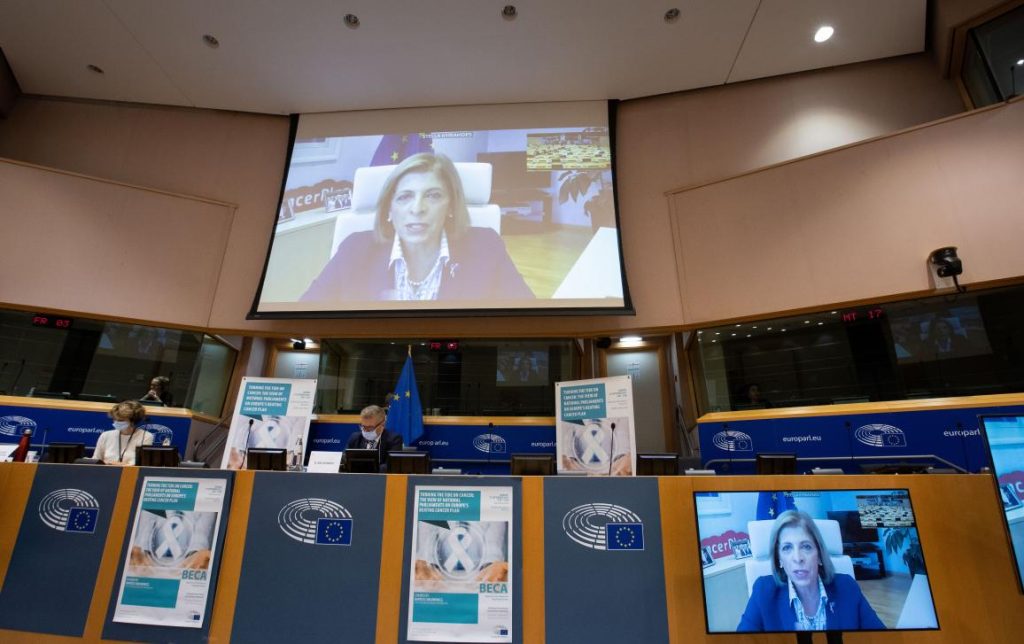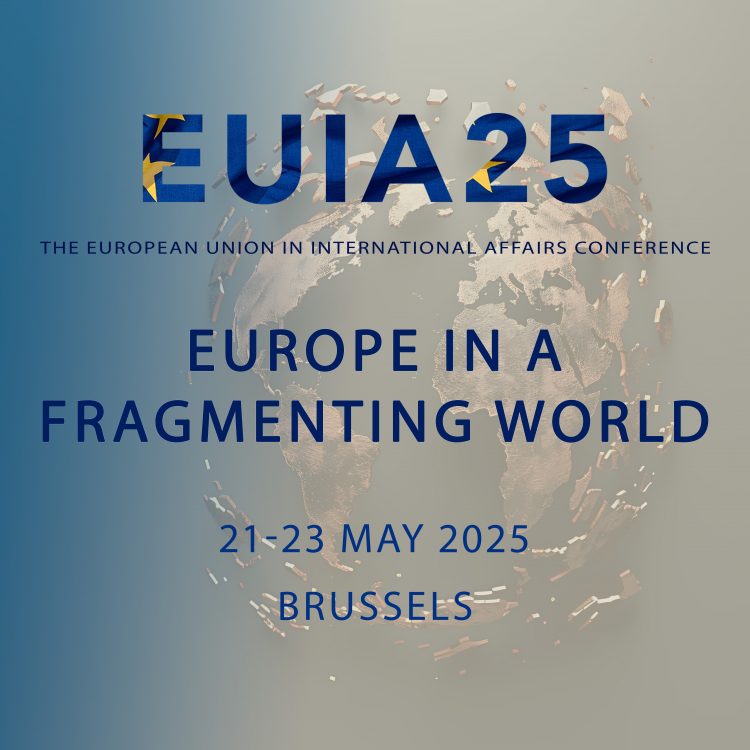 Nathalie Brack is Professor of Political Science and Researcher at the Institute for European Studies (IEE-ULB) and the Centre d’Etudes de la vie politique (CEVIPOL). She is also visiting Professor at the College of Europe (Bruges).
Nathalie Brack is Professor of Political Science and Researcher at the Institute for European Studies (IEE-ULB) and the Centre d’Etudes de la vie politique (CEVIPOL). She is also visiting Professor at the College of Europe (Bruges).
The Parliaments of Europe: full part actors or powerless spectators?
A state of play 2010–2020
Abstract
Since the Lisbon Treaty, EU national Parliaments have been recognized as relevant and legitimate players at the supranational level and given tools to be involved beyond the scrutiny of their national government. However, the last decade brought new challenges to the Europeanisation of national Parliaments, with several crises boosting intergovernmentalism. This study, commissioned by the European Parliament’s Policy Department for Citizens’ Rights and Constitutional Affairs at the request of the AFCO Committee, examines how EU national Parliaments have adapted to all these challenges and assesses their involvement in EU affairs over the past decade.
Parliaments in the EU: active players at the supranational level
Parliaments play a key role in ensuring accountability and democratic legitimacy in Europe. The Lisbon Treaty was an essential step towards strengthening democracy in the EU, with the further empowerment of the European Parliament (EP) and the recognition of the contribution that the national Parliaments of the Member States (NPs) can make to democratize the decision-making process. For the first time, they have been acknowledged as active players at the supranational level, and they have since become “multi-arena” actors, having a fundamental role at both the national and supranational level. The Lisbon Treaty has had positive effects on NPs, as it has triggered their further Europeanization, upgraded their resources and led to an adaptation of their procedures and engagement in EU affairs.
Weakened by the successive EU crises?
However, in parallel with the implementation of the Lisbon Treaty, the EU and the Member States have had to face a decade of challenges and crises, which has left its mark on the relations between the institutions and on the decision-making process. Indeed, the so-called decade of crises increased the salience and politicization of EU issues. The economic and financial crisis in particular had tremendous consequences for the EU’s architecture and decision-making process. It accelerated ongoing trends in the EU, such as the empowerment of the executive, particularly the European Council, and the recourse to alternative procedures and non-legislative decisions. Whereas national Parliaments had just adapted their scrutiny procedures to monitor the ordinary legislative procedure with the new tools provided by the Lisbon Treaty, the crises acted as a boost for intergovernmentalism. There has not been any massive transfer of competences as such, but the supranational surveillance of national budgets and economic policies has greatly increased the constraints on national governments and has undermined parliamentary scrutiny. This has led to renewed debates on the democratic deficit in the EU and to new contestations, such as waves of Euroscepticism in many Member States.
Aims of the study on the Parliaments of Europe
This study aims at taking stock of the evolution of NPs in dealing with EU affairs during the last decade and at assessing the tools at their disposal. It focuses and makes recommendations on the following three main elements:
- 1- Relations between NPs and the European Commission;
- 2- Interparliamentary cooperation at the EU level;
- 3- The role of NPs in monitoring their government’s activities in the Council and European Council.
National Parliaments & the Commission
As regards relations with the European Commission, the study recommends introducing a “green card” so as to give NPs the opportunity to put forward positive ideas and suggest new pieces of legislation instead of being only the watchdogs of subsidiarity. It also suggests increasing the flexibility regarding the eight-week deadline set for sending reasoned opinions: this flexibility has been put in place informally over the last few years, including during the Covid-19 pandemic but could be formalised to give more room for manoeuvre to NPs. The study also suggests the possibility for NPs to intervene at a later stage of the decision-making process, through a “late card” or an informal tool.
Interparliamentary cooperation at the EU level
Regarding the interparliamentary cooperation at the EU level, the study recommends an increased use of a committee-based approach in order to trigger a more consistent interest from Members of Parliament (MPs). It would be based on concrete problems or salient issues or specific documents to be monitored and discussed. It could take into account the main differentiated areas of integration as such a format would allow for differentiation in interparliamentary cooperation.
The study also Suggests a more political approach to interparliamentary cooperation through an increased focus on political parties and more involvement of parliamentary minorities. A greater involvement of MPs and MEPs along political – rather than national – lines would make their cooperation more politicised and could trigger more public interest, as well as transnational alliances instead of national or interinstitutional patterns of cooperation. For instance, MPs and MEPs could sit by political families, national delegations should no longer be seen as unitary actors but as representatives of the diversity of opinions within each parliament, proceedings could reflect this diversity and parliamentary minorities could be guaranteed certain rights such as issuing an initiative for a green card or an official opinion to the Commission.
Monitoring through the Council & European Council
Finally, concerning the scrutiny of the Council and European Council, some improvements could be made. The involvement of NPs in the preparation of European Council meetings and in the preparation of the submission of the stability and national reform programmes before their submission could be increased. The chair of the committee dealing with EU affairs could be more closely involved in preparatory meetings and/or be part of the national delegations during European Council meetings.
Furthermore, the strategic agendas of the EP and NPs could be better aligned to improve the monitoring of the European Semester. A better cooperation between NPs and the EP could trigger the emergence of transnational coalitions on macroeconomic policies rather than divisions between the national and European levels.
References and credits
The Parliaments of Europe: full part actors or powerless spectators? by Nathalie Brack. Policy Department for Citizens’ Rights and Constitutional Affairs Directorate-General for Internal Policies PE 698.534- September 2021 / STUDY Requested by the AFCO committee
Photo © European Parliament
Caption: The European Parliament Special Committee on Beating Cancer (BECA), in cooperation with the Legislative Dialogue Unit of the Directorate for Relations with national Parliaments, invited Members of national Parliaments of the EU Member States to attend a virtual Interparliamentary Committee Meeting (ICM).




